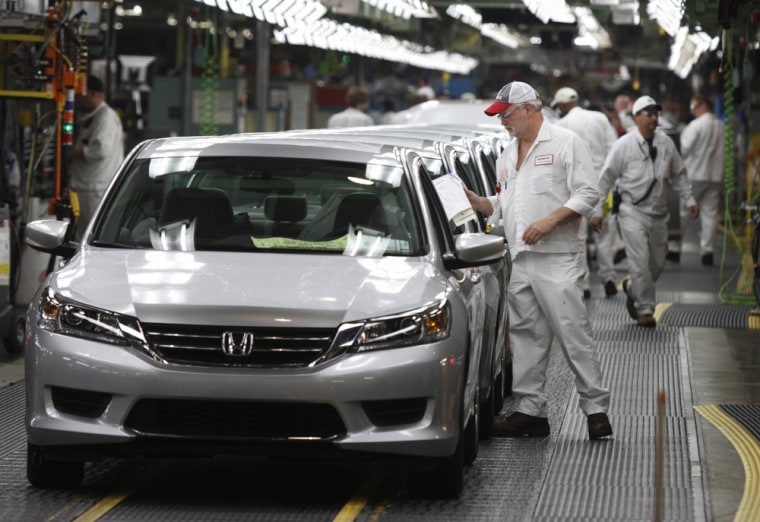Thirty-two years after building its first car in the United States, Honda has finally reached the point where it is a net exporter of vehicles from the U.S.
The milestone caps a surge in manufacturing in the U.S. in recent years as the Japanese automaker moved more production out of Japan to adjust costs.
"Achieving net exporter status is a natural result of our commitment and investment in the U.S. and North America," said Tetsuo Iwamura, president & CEO of Honda North America.
Last year, Honda exported 108,705 U.S.-made Honda and Acura vehicles while, the company imported 88,537 from Japan. In total, the automaker built 1.3 million vehicles at four U.S. assembly plants.
Shifting production to the U.S.
Honda's transition to net exporter status was driven by two factors that made it more advantageous to build and ship vehicles from the United States instead of importing them from Japan.
First, the strength of the yen in recent years prompted the automaker to diversify its production around the world.
With the U.S. being Honda's largest market outside of Japan, and with the dollar weaker than the yen for much of the last four years, the automaker shifted more production to plants in Ohio, Indiana and Alabama.
Second, as sales rebounded in the U.S. Honda was in a position to meet more of that demand by expanding production at its U.S. plants.
That expansion has included investing $2.7 Billion over the past three years. As a result, Honda increased its production in the U.S. by 7.4 percent in 2013.
Last year, Honda's U.S. sales increase 7.2 percent, which was just shy of the pace of industry sales, which rose 7.6 percent.
Honda finished the year as the fifth most popular automaker in the U.S. with a 9.8 percent market share.
—By CNBC's Phil LeBeau. Follow him on Twitter @LeBeauCarNews.
Questions? Comments? BehindTheWheel@cnbc.com.
